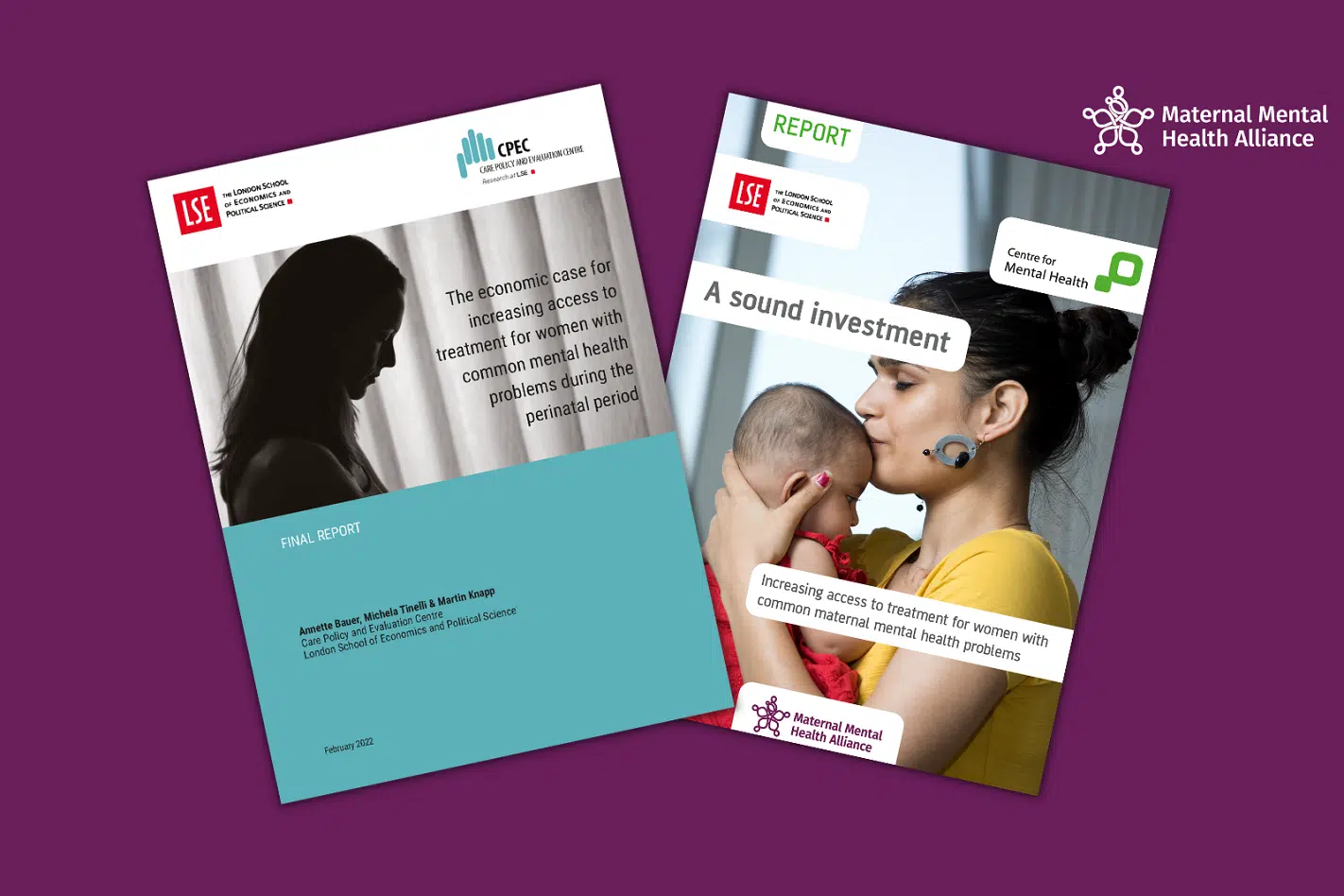2nd February 2022
iHV welcomes new Maternal Mental Health Alliance (MMHA) economic research report which shows that health visiting has a clinically effective and cost-effective role in perinatal mental health care: The economic case for increasing access to treatment for women with common mental health problems during the perinatal period.
- Independent research commissioned by the Maternal Mental Health Alliance (MMHA), conducted by the London School of Economics and Political Science (LSE), estimates the costs and benefits of addressing unmet maternal mental health needs.
- The report presents the clear economic benefits from training midwives and health visitors in perinatal mental health and enabling their work with pregnant and postnatal women.
- Changes to standard practice could have a net economic benefit of £490 million over ten years; £52 million in NHS savings and quality of life improvements worth £437 million
- Universal services such as health visiting and midwifery have a clinically effective and cost-effective role in perinatal mental health care, identifying women in need or at risk, and facilitating access to or providing treatment as part of their routine work with women during and after pregnancy.
- The report recommends scaling-up integrated provision across the UK as both desirable and viable from an economic perspective.
In a new study commissioned by the MMHA, researchers from LSE evaluated the economic viability of reforming current treatment for pregnant and postnatal women experiencing common maternal mental health problems such as depression and anxiety.
The report, ‘The economic case for increasing access to treatment for women with common mental health problems during the perinatal period’, estimates the costs and benefits of a model of care which could give women’s mental health the same priority as their physical health. The model, which focuses on the essential role of midwives and health visitors, would allow for women’s mental wellbeing to be accurately assessed at every routine contact and suitable treatments to be offered.
The proposed ‘integrated model of care’ would include dedicated maternal mental health training for health visitors and midwives as well as greater collaboration with other healthcare services.
In the report, resources needed to set up and provide this model of care – namely employment and training costs – are measured against their economic return. Researchers conclude that it could lead to cost savings of £52 million for the NHS over 10 years, and improvements in women’s quality of life estimated at £437 million. In total, this is a net benefit of £490 million over 10 years.
Policy analysis by MMHA member, Centre for Mental Health, determines that equitable integrated service provision is the logical and economical next step in the evolution of perinatal mental health care in the UK. It would close a major gap and ensure women get timely access to help for their mental health needs.
Alison Morton, Executive Director iHV, said:
“Even before COVID-19, there were many system challenges to ensuring that all families had access to the right care and treatment, at the right time, for their mental health and wellbeing. Against a backdrop of rising levels of unmet need, we now need to do better. I am therefore delighted to see this robust and long-awaited research published today – it presents a sound economic case for health visiting, as an evidence-based solution to some of these challenges, with a fully costed model of care which demonstrates significant savings alongside improving the lives of families experiencing perinatal mental health problems.
“This report is a significant resource for policy makers looking to deliver the Government’s Start for Life commitment to improve parents’ access to perinatal mental health support and give every child the best start in life. With such clear evidence, it is vital that the Government acts now to strengthen the health visiting service in England as part of an effective integrated system of perinatal mental health support for families.”
Melita Walker, Head of Mental Health iHV, added:
“Mental health problems in the perinatal period are common and as all families have a health visitor, they are ideally placed to offer skilled, professional support quickly when it’s needed. However, current shortages of health visitors make that difficult, and many families are missing out on effective early help for common mental health problems.
“This new report demonstrates that health visiting has a clinically effective and cost-effective role in perinatal mental health care, identifying families at risk of or suffering from mental health problems and facilitating access to, or providing, effective evidence-based treatments as part of their routine work with women and their families during the perinatal period.
“Ensuring all health visitors have the training and time to meet women’s mental health needs is a sound investment that would make a difference to many thousands of women and their families. Furthermore, this timely new economic evidence strengthens the findings and recommendations highlighted in the latest research by Professor Jane Barlow, on the unique leadership role of Specialist Health Visitor in Perinatal and Infant Mental Health in supporting effective integrated PIMH services.”
If we are serious about using sound evidence to make the biggest difference, then going forward we need to:
- Build back our health visitor numbers
- Ensure all health visitors have appropriate capacity and high-quality training in family mental health
- Have a Specialist PIMH Health Visitor supporting families in every Local Authority in England, every Health Board in Wales and Scotland and every Health and Social Care Trust in Northern Ireland.




